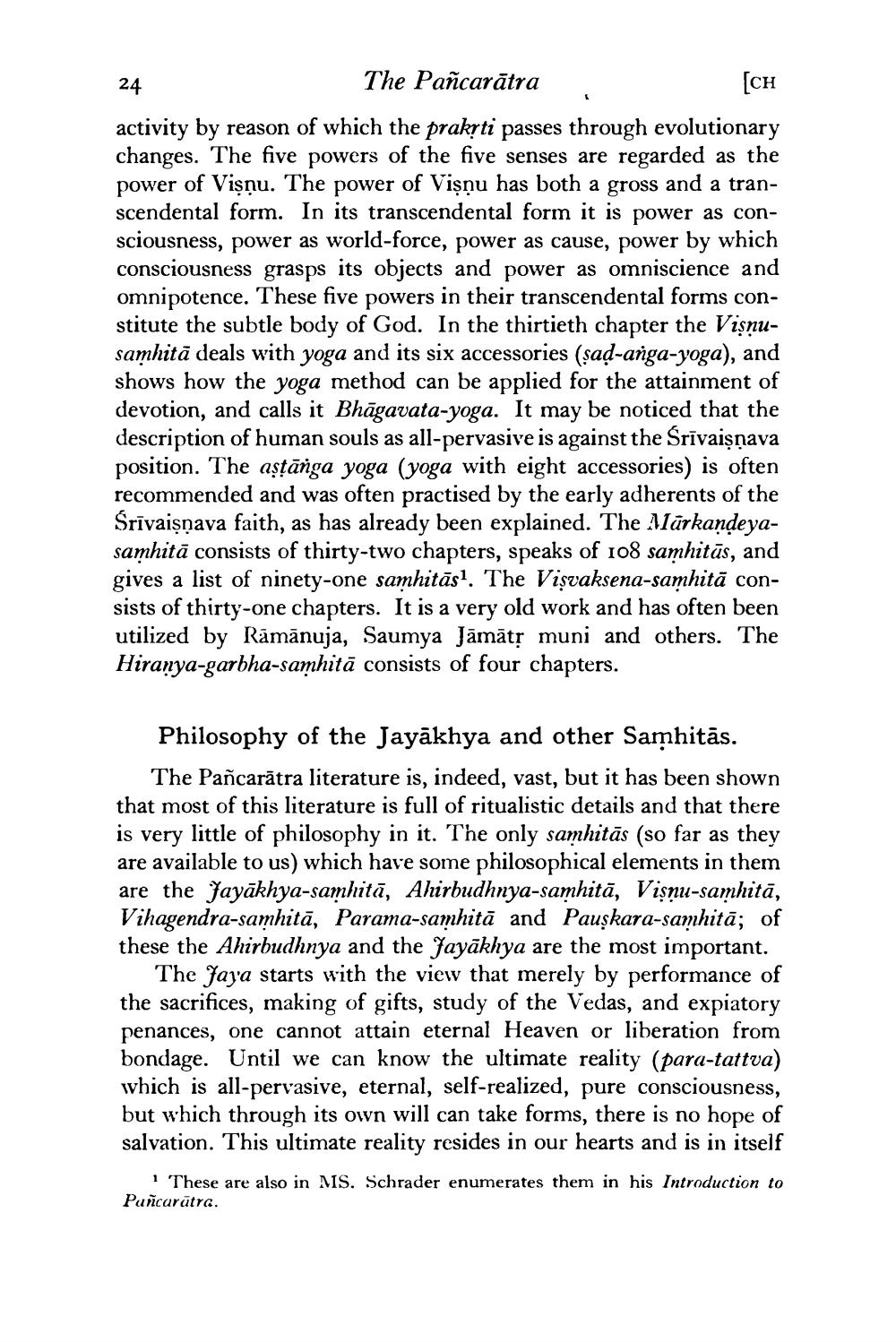________________
24 The Pañcarātra
[сн activity by reason of which the prakrti passes through evolutionary changes. The five powers of the five senses are regarded as the power of Visņu. The power of Vişnu has both a gross and a transcendental form. In its transcendental form it is power as consciousness, power as world-force, power as cause, power by which consciousness grasps its objects and power as omniscience and omnipotence. These five powers in their transcendental forms constitute the subtle body of God. In the thirtieth chapter the Vişnusamhitā deals with yoga and its six accessories (şad-anga-yoga), and shows how the yoga method can be applied for the attainment of devotion, and calls it Bhāgavata-yoga. It may be noticed that the description of human souls as all-pervasive is against the Śrīvaisnava position. The aştānga yoga (yoga with eight accessories) is often recommended and was often practised by the early adherents of the Śrīvaisnava faith, as has already been explained. The Alārkandeyasamhitā consists of thirty-two chapters, speaks of 108 samhitūs, and gives a list of ninety-one samhitās?. The Visvaksena-samhită consists of thirty-one chapters. It is a very old work and has often been utilized by Rāmānuja, Saumya Jāmātņ muni and others. The Hiranya-garbha-samhitā consists of four chapters.
Philosophy of the Jayākhya and other Samhitās.
The Pañcarātra literature is, indeed, vast, but it has been shown that most of this literature is full of ritualistic details and that there is very little of philosophy in it. The only samhitās (so far as they are available to us) which have some philosophical elements in them are the Jayākhya-samhitā, Ahirbudhnya-samhitā, Vişnu-samhitā, Vihagendra-samhitā, Parama-samhitā and Pauskara-samhitā; of these the Ahirbudhnya and the Jayākhya are the most important.
The Jaja starts with the view that merely by performance of the sacrifices, making of gifts, study of the Vedas, and expiatory penances, one cannot attain eternal Heaven or liberation from bondage. Until we can know the ultimate reality (para-tattva) which is all-pervasive, eternal, self-realized, pure consciousness, but which through its own will can take forms, there is no hope of salvation. This ultimate reality resides in our hearts and is in itself
1 These are also in MIS. Schrader enumerates them in his Introduction to Puñcurūtra.




